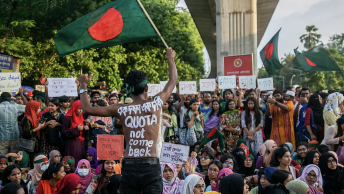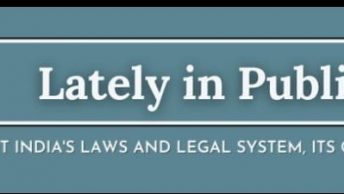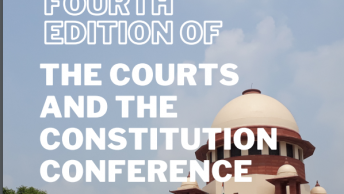A mass movement led by students has ushered in a new dawn in Bangladesh. What began as a claim for reform of the quota system transformed into a national movement to oust Bangladesh’s long standing...
A mass movement led by students has ushered in a new dawn in Bangladesh. What began as a claim for reform of the quota system transformed into a national movement to oust Bangladesh’s long-standing...
A fortnightly feature inspired by I-CONnects weekly What’s New in Public Law feature that addresses the lacuna of a one-stop-shop public law newsletter in the Indian legal space. What’s new at...
Speakers and Schedule of the Fourth Edition of the Court and Constitution Conference, 2023 at NALSAR University of Law, Hyderabad.
[As part of our New Scholarship section, we have been inviting discussants to respond to the public law-themed articles featured in Volume 5 the Indian Law Review. You can access all the posts in...
[Ed Note: As part of our New Scholarship section, we have been inviting discussants to respond to public law themed articles featured in Volume 5 the Indian Law Review. You can access the posts in...
[Ed Note: As part of our New Scholarship section, we have been inviting discussants to respond to the public law themed articles featured in Volume 5 the Indian Law Review. You can access the posts...
The article revolves around the recent order promulgated by China's National Radio and Television Administration (NRTA). The authors examine the same through the lens of international human rights...
Varadaraja Shivaraya Mallar, who taught at seven law schools across India, left us on Saturday. With his ebulliently booming voice, Professor V.S. Mallar introduced generations of students to the...
Introduction Central Bureau of Investigation (‘CBI’) was established by a resolution of the Home Ministry in 1963. Since then, numerous questions have been raised regarding its investigations. It is...









